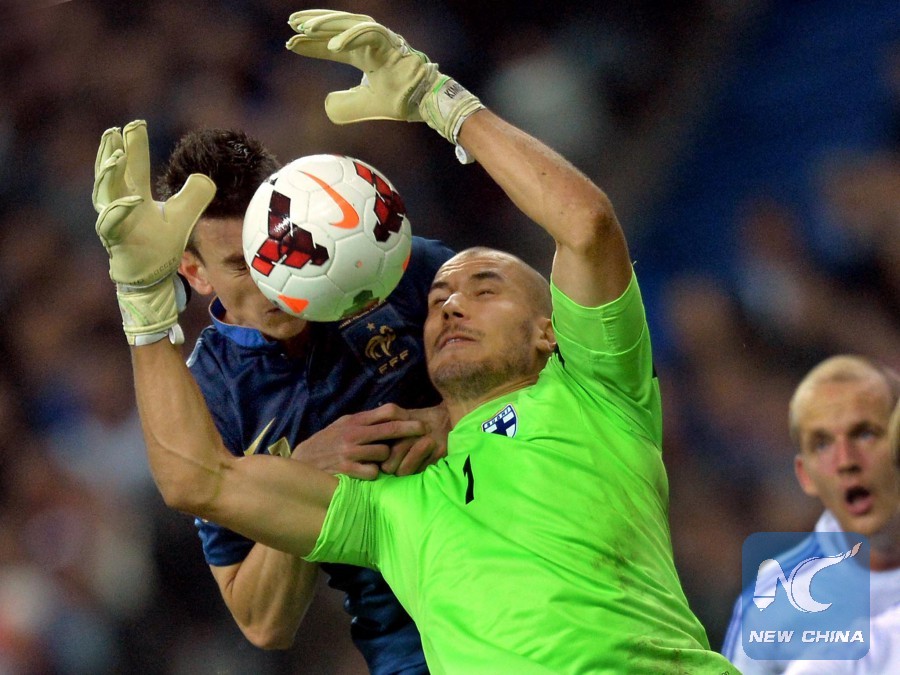
France's Laurent Koscielny (Rear) vies with Finland's goalkeeper Niki Maenpaa during their FIFA World Cup 2014 qualifier soccer match in Paris, France, Oct. 15, 2013. France won the match 3-0. XinhuaPhoto/Chen Xiaowei
LONDON, Feb. 15 (Xinhua) -- Researchers have found evidence of chronic traumatic encephalopathy (CTE) caused by repeated blows to the head of former football players, according to a study released Wednesday by the University College London (UCL).
Football players are exposed to repetitive blows to the head from heading the ball and from head-to-player collisions. But football is unique compared with boxing and American football in that blows to the head, as they are commonly more minor and less likely to cause significant neurological symptoms or loss of consciousness to football players.
To dig deeper into the issue, a team led by researchers from the UCL carried out post-mortem analysis on the brains of six former football players. The team found CTE pathology in four of the six brains examined, and all six had signs of Alzheimer's disease as well.
The rate of CTE identified in the footballers' brains exceeds the 12 percent average background rate of CTE found in a previous survey of 268 brains of an unselected population at the Queen Square Brain Bank, according to the study, which has been published in the journal Acta Neuropathologica. Both CTE and Alzheimer's disease can cause dementia.
"Our findings of CTE in retired footballers suggest a potential link between playing football and the development of degenerative brain pathologies in later life. However, it is important to note that we only studied a small number of retired footballers with dementia and that we still do not know how common dementia is among footballers," said Dr. Helen Ling from UCL, who is one of the authors of the study.
"Major head injuries in football are more commonly caused by player collisions rather than heading the ball. The average footballer heads the ball thousands of times throughout their career, but this seldom causes noticeable neurological symptoms," said Professor Huw Morris, another author from UCL.
More research is now needed to determine the risks associated with playing football so that "any necessary protective measures can be put in place to minimise potential long term damage," added Morris.

